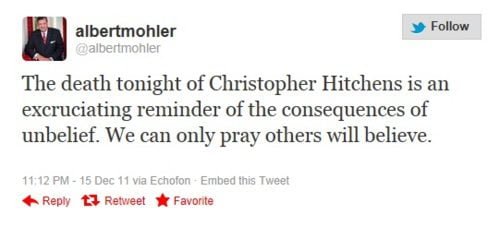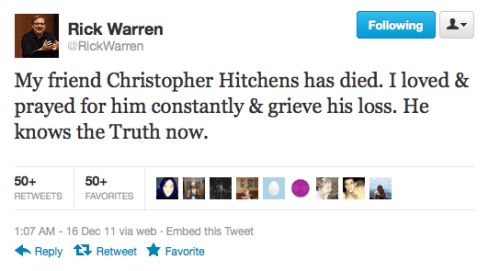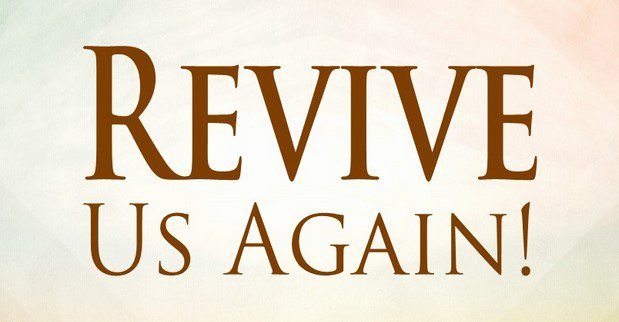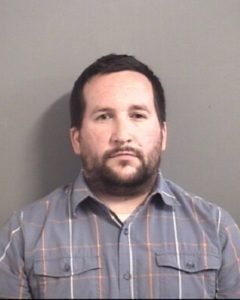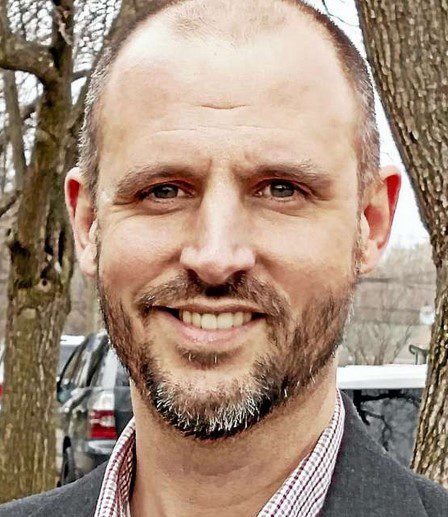
Saint Christopher Hitchens died eight years ago (December 15, 2011). As many of you do, I miss Hitchens’ quick wit and acerbic tongue. While I disagreed with Hitch politically, we had much in common when it came to our critiques of Evangelical Christianity. I had a deep love, respect, and admiration for the man.
Several months after Hitchens’ death from esophageal cancer, his last book was released. Titled Mortality, the book was an introspective look at human mortality — in particular his own. I heartily recommend this book to everyone, Christian or not. Hitchens wrote:
- The notorious stage theory of Elisabeth Kübler-Ross, whereby one progresses from denial to rage through bargaining to depression and the eventual bliss of ‘acceptance,’ hasn’t so far had much application to my case. In one way, I suppose, I have been ‘in denial’ for some time, knowingly burning the candle at both ends and finding that it often gives a lovely light. But for precisely that reason, I can’t see myself smiting my brow with shock or hear myself whining about how it’s all so unfair: I have been taunting the Reaper into taking a free scythe in my direction and have now succumbed to something so predictable and banal that it bores even me. Rage would be beside the point for the same reason. Instead, I am badly oppressed by the gnawing sense of waste. I had real plans for my next decade and felt I’d worked hard enough to earn it. Will I really not live to see my children married? To watch the World Trade Center rise again? To read — if not indeed to write — the obituaries of elderly villains like Henry Kissinger and Joseph Ratzinger? But I understand this sort of non-thinking for what it is: sentimentality and self-pity.
- To the dumb question ‘Why me?’ the cosmos barely bothers to return the reply: Why not?
- Myself, I love the imagery of struggle. I sometimes wish I were suffering in a good cause, or risking my life for the good of others, instead of just being a gravely endangered patient. Allow me to inform you, though, that when you sit in a room with a set of other finalists, and kindly people bring a huge transparent bag of poison and plug it into your arm, and you either read or don’t read a book while the venom sack gradually empties itself into your system, the image of the ardent soldier or revolutionary is the very last one that will occur to you. You feel swamped with passivity and impotence: dissolving in powerlessness like a sugar lump in water.
- It’s normally agreed that the question ‘How are you?’ doesn’t put you on your oath to give a full or honest answer. So when asked these days, I tend to say something cryptic like, ‘A bit early to say.’ (If it’s the wonderful staff at my oncology clinic who inquire, I sometimes go so far as to respond, ‘I seem to have cancer today.’) Nobody wants to be told about the countless minor horrors and humiliations that become facts of ‘life’ when your body turns from being a friend to being a foe: the boring switch from chronic constipation to its sudden dramatic opposite; the equally nasty double-cross of feeling acute hunger while fearing even the scent of food; the absolute misery of gut-wringing nausea on an utterly empty stomach; or the pathetic discovery that hair loss extends to the disappearance of the follicles in your nostrils, and thus to the childish and irritating phenomenon of a permanently runny nose . . . It’s no fun to appreciate to the full the truth of the materialist proposition that I don’t have a body, I am a body.
- The man who prays is the one who thinks that god has arranged matters all wrong, but who also thinks that he can instruct god how to put them right.
- However, one thing that grave illness does is to make you examine familiar principles and seemingly reliable sayings. And there’s one that I find I am not saying with quite the same conviction as I once used to: In particular, I have slightly stopped issuing the announcement that “whatever doesn’t kill me makes me stronger. In fact, I now sometimes wonder why I ever thought it profound . . . In the brute physical world, and the one encompassed by medicine, there are all too many things that could kill you, don’t kill you, and then leave you considerably weaker.
- Like so many of life’s varieties of experience, the novelty of a diagnosis of malignant cancer has a tendency to wear off. The thing begins to pall, even to become banal. One can become quite used to the specter of the eternal Footman, like some lethal old bore lurking in the hallway at the end of the evening, hoping for the chance to have a word. And I don’t so much object to his holding my coat in that marked manner, as if mutely reminding me that it’s time to be on my way. No, it’s the snickering that gets me down.
- So far, I have decided to take whatever my disease can throw at me, and to stay combative even while taking the measure of my inevitable decline. I repeat, this is no more than what a healthy person has to do in slower motion. It is our common fate. In either case, though, one can dispense with facile maxims that don’t live up to their apparent billing.
Live long enough, and your thoughts will increasingly turn towards your own morality. I am sixty-two and in fragile health. I am facing yet another health challenge, one that, frankly, worries me. I will have a CT scan next week, and then see the surgeon the week after for the results. I don’t want to make something out of possibly nothing, so I will refrain from talking much about this until the doctor says, you have ________________. Besides, my wife’s health problems this year are enough to worry me without adding more to my already full plate.
When Polly landed in the hospital in January, had major abdominal surgery in August, and was off work for two months, I was confronted with her fragility too. I thought, she could die!? No, no, no, that’s not how it’s supposed to happen! I am the sicko. I am first in line when it comes to dying. Funny how “life” doesn’t give a shit about what we think or want. “Life” just happens, regardless of our objections and protestations. “Life” ain’t fair, and not everything is unicorns, rainbows, and puppies. Live long enough, and the circumstances of life are going to deal you a lousy hand — with or without Jesus. All any of us can do is endure and hope for a better tomorrow.
Being an unbeliever, and having Christian friends, neighbors, and workmates often puts you in a difficult place when hard times come your way. You certainly want empathy and support from those closest to you, but when those people are Christians, their help is often couched in religious verbiage. It’s hard enough when you are feeling well to deal with Jesusy platitudes, but when you are sick, in pain, or dying, the last thing you want to hear is religious drivel.
A September 2010 Associated Press story shared Hitchens’ view on such things:
Stricken with cancer and fragile from chemotherapy, author and outspoken atheist Christopher Hitchens sits in an armchair before an audience and waits for the only question that can come first at such a time.
“How’s your health?” asks Larry Taunton [who later wrote a fraudulent book about Hitchens that alleged Hitch might have become a Christian], a friend who heads an Alabama-based group dedicated to defending Christianity.
“Well, I’m dying, since you asked, but so are you. I’m only doing it more rapidly,” replies Hitchens, his grin faint and his voice weak and raspy. Only wisps of his dark hair remain; clothes hang on his frame.
….
For some of his critics, it might be satisfying to see a man who has made a career of skewering organized religion switch sides near the end of his life and pray silently for help fighting a ravaging disease.
He has an opportunity: Monday has been informally proclaimed “Everybody Pray for Hitchens Day.”
Christopher Hitchens won’t be bowing his head, even on a day set aside just for him.
“I shall not be participating,” he said in an interview with The Associated Press.
….
Taunton is devoutly Christian yet has developed a fast friendship with Hitchens, who appeared at a similar debate sponsored by the organization last year. Taunton is among those praying for Hitchens, and Hitchens takes no offense.
The way the English-born Hitchens sees it, the people praying for him break down into three basic groups: those who seem genuinely glad he’s suffering and dying from cancer; those who want him to become a believer in their religious faith; and those who are asking God to heal him.
Hitchens has no use for that first group. “‘To hell with you’ is the response to the ones who pray for me to go to hell,” Hitchens told AP.
He’s ruling out the idea of a deathbed change of heart: “‘Thanks but no thanks’ is the reply to those who want me to convert and recognize a divinity or deity.”
It’s that third group — people who are asking God for Hitchens’ healing — that causes Hitchens to choose his words even more carefully than normal. Are those prayers OK? Are they helpful?
“I say it’s fine by me, I think of it as a nice gesture. And it may well make them feel better, which is a good thing in itself,” says Hitchens.
But prayers for his healing don’t make him feel better.
“Well, not any more than very large numbers of very kind, thoughtful letters from nonbelievers, some of whom know me, some of whom don’t, asking me to know that they are on my side,” Hitchens said. “That cheers me up, yes.”
Hitchens doesn’t know exactly how “Everybody Pray for Hitchens Day” began, other than that it’s one of those things that appears on the Internet and goes viral. He declined an invitation to appear at a rabbi’s prayer service in Washington that day, and he doesn’t see any point in the exercise.
“I’m perfectly sure that there is nothing to be gained from it in point of my health, but perhaps I shouldn’t even say that. If it would do something for my morale possibly it would do something for my health. We all know that morale is an element in recovery,” he said. “But incantations, I don’t think, have any effect on the material world.”
Every time I mention a personal health problem, I can count on receiving blog comments and social media messages saying this or that Christian is praying for me. My standard response is to either ignore their comments or politely say “thank you.” In saying “thank you,” I am not, in any way, validating their beliefs or the existence of the Christian God. All I am doing is saying that I appreciate their thoughtfulness. Having spent most of my life in the Christian church, I know that people often say “I’m praying for you” when they don’t know what else to say or do. If it’s a one-off, I’m fine with their “praying for you” comment. It’s when they repeatedly tell me that they are praying for me that annoys me. There’s no need to keep reminding me that you are praying for me — if you are. Often, “praying for you” becomes an easy way to do nothing, much like “thoughts and prayers” every time there is another mass shooting.
Instead of doing the least you can do — praying — how about putting feet and hands to your prayers and meaningfully doing something for the sick, hurting, and dying? I am as guilty as the next person when I use social media emoticons or “thinking of you” comments to express my concern for someone. It is so easy to click LIKE and then move on to a funny cat video. For both the religious and the godless, instead of empty words, perhaps we should think about what we can do to help others. How can I make a difference in my friend’s, neighbor’s, or workmate’s life?
To Christians who might read this post, I ask you to pause for a moment before you say to an atheist, agnostic, or unbeliever, “I’m praying for you.” Ask yourself: why am I saying these words? What help will my words be to others? Is there something else I can do instead of uttering a religious cliché? Does this person already know I am praying for them? Do I really need to remind them that I am doing so?
Look, it’s not easy confronting the mortality of our families, friends, and neighbors. Rarely does a week go by when I don’t read a newspaper obituary about someone I knew. Someday, it will be someone else reading my death notice. Not only are Polly and I battling serious health problems, we also have to deal with older family members who are dropping like flies. Just this week, we found out one of Polly’s aunts has only a few months to live. Her husband died a year or so ago. Polly’s mom has been at death’s door for months. Her father was recently admitted to the hospital for an infection and is now in a nursing home for the umpteenth time. He is sliding, ever-so-slowly, into dementia. The last time we visited Mom and Dad, he spoke all of a dozen or so words to us. It’s hard to believe that this feeble old man at age sixty-five was working in a factory and doing construction work on the side. I can say the same for myself. It seems like yesterday, I was a strong, viral man, one who hunted, played competitive sports, and did all his own auto and home repairs. Last weekend, I hired three of my grandchildren to rake our yard. I quietly wept as I thought, yet another thing I can no longer do.
Instead of saying to me, “I’m praying for you,” perhaps both of us would be better served if you said nothing. Instead of empty religious clichés, how about a look that says, “I understand” or a gentle hug that reflects our shared humanity. Or better yet, how about sharing a meal or hoisting a drink in honor of our friendship? Last Sunday, Polly and I had dinner at Taco’s Nacho’s with Dave and Newana Echler. Dave and I have been friends for over fifty years. For several years, I was their pastor. We have each helplessly watched as the other battles life-threatening illnesses. Every time we get together I wonder, will this be the last time we see each other?
The Echler’s are Christians. Newana is a Nazarene preacher’s daughter. They were heartbroken when Polly and I left Christianity. Yet, our friendship has survived. How? Because we chose to set religion and atheism aside, and, instead, focus on the things we have in common: good food, love of backroad travel, and family. We have so much shared history, I would hate to lose them as friends. As we left the restaurant, I reminded myself of how blessed I was to have the Echlers as friends. I am sure they privately pray for me, and while I can’t do the same for them, rarely does a day go by that I don’t think of them and wonder how they are doing. Every time we part company, we briefly embrace and say, “I love you.” Love. Is this not what really matters? It was Dave who drove to Fort Wayne on the day of Polly’s surgery to be with me. It was Dave who pressed $300 in my hand, knowing that we were going through difficult times financially. It seems to me that instead of saying, “I’m praying for you,” what Christians and heathens alike need are tangible, thoughtful expressions of kindness and love.
What say ye, dear readers? Please leave your pithy, erudite thoughts in the comment section.
About Bruce Gerencser
Bruce Gerencser, 62, lives in rural Northwest Ohio with his wife of 41 years. He and his wife have six grown children and twelve grandchildren. Bruce pastored Evangelical churches for twenty-five years in Ohio, Texas, and Michigan. Bruce left the ministry in 2005, and in 2008 he left Christianity. Bruce is now a humanist and an atheist. For more information about Bruce, please read the About page.
Are you on Social Media? Follow Bruce on Facebook and Twitter.
Thank you for reading this post. Please share your thoughts in the comment section. If you are a first-time commenter, please read the commenting policy before wowing readers with your words. All first-time comments are moderated. If you would like to contact Bruce directly, please use the contact form to do so.
Donations are always appreciated. Donations on a monthly basis can be made through Patreon. One-time donations can be made through PayPal.


